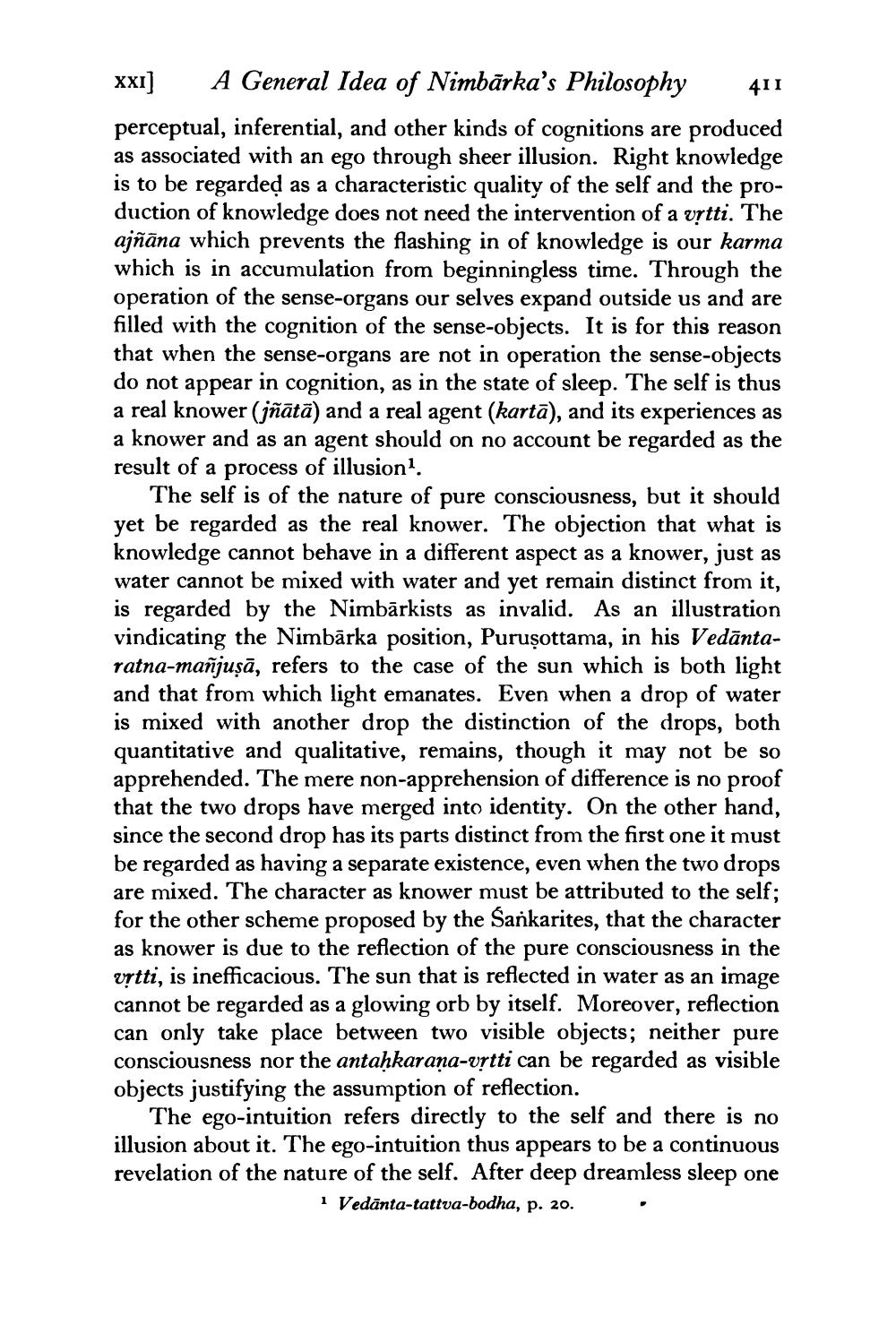________________
XXI] A General Idea of Nimbārka's Philosophy 411 perceptual, inferential, and other kinds of cognitions are produced as associated with an ego through sheer illusion. Right knowledge is to be regarded as a characteristic quality of the self and the production of knowledge does not need the intervention of a vrtti. The ajñāna which prevents the flashing in of knowledge is our karma which is in accumulation from beginningless time. Through the operation of the sense-organs our selves expand outside us and are filled with the cognition of the sense-objects. It is for this reason that when the sense-organs are not in operation the sense-objects do not appear in cognition, as in the state of sleep. The self is thus a real knower (jñātā) and a real agent (kartā), and its experiences as a knower and as an agent should on no account be regarded as the result of a process of illusion?.
The self is of the nature of pure consciousness, but it should yet be regarded as the real knower. The objection that what is knowledge cannot behave in a different aspect as a knower, just as water cannot be mixed with water and yet remain distinct from is regarded by the Nimbārkists as invalid. As an illustration vindicating the Nimbārka position, Purusottama, in his Vedāntaratna-manjuşā, refers to the case of the sun which is both light and that from which light emanates. Even when a drop of water is mixed with another drop the distinction of the drops, both quantitative and qualitative, remains, though it may not be so apprehended. The mere non-apprehension of difference is no proof that the two drops have merged into identity. On the other hand, since the second drop has its parts distinct from the first one it must be regarded as having a separate existence, even when the two drops are mixed. The character as knower must be attributed to the self; for the other scheme proposed by the Sankarites, that the character as knower is due to the reflection of the pure consciousness in the vrtti, is inefficacious. The sun that is reflected in water as an image cannot be regarded as a glowing orb by itself. Moreover, reflection can only take place between two visible objects; neither pure consciousness nor the antaḥkarana-vrtti can be regarded as visible objects justifying the assumption of reflection.
The ego-intuition refers directly to the self and there is no illusion about it. The ego-intuition thus appears to be a continuous revelation of the nature of the self. After deep dreamless sleep one
i Vedānta-tattva-bodha, p. 20.




